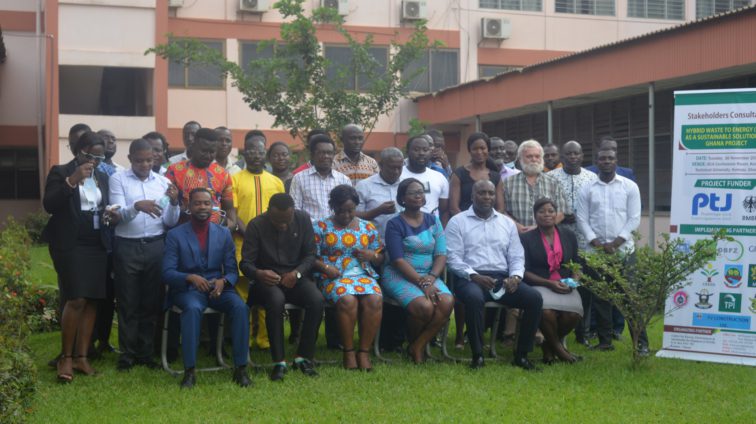The sanitation situation in Ghana is set to improve as a waste-to-energy project is being piloted at Gyankobaa in the Atwima-Nwiabiagya South district of the Ashanti Region.
The project, which will take 48 months to complete is expected to generate 400 KW of electricity from municipal waste. This will be scaled up to other parts of the country.
The German Government, through its Federal Ministry of Education and Research, signed a 5.8 million euro contract involving 4 institutions in Germany and 1 from Ghana.
These comprise 3 academic institutions, one research and development institution and a medium-scale industry.
The project’s overall aim is to develop concepts for waste segregation and the conversion of various fractions into energy by using biogas, pyrolysis and solar PV plants.
The project will also create business models to successfully replicate and propagate the models in 10 different regions in Ghana.
It will also build local experts to design, construct and maintain hybrid waste to energy facilities.
At a stakeholder consultation meeting at the Kumasi Technical University, the Project Coordinator and Head of the Renewable Energy Centre at the KsTU, Dr. Julius Ahiekpor said the project will begin full operation by the middle of 2022.
“We want to produce energy and train people to manage such projects in the future. It’s a pilot that has a research component,” he summarized.
How the project started
Germany's Federal Ministry of Education and Research (BMBF) of Germany in collaboration with Ghana’s Ministry of Environment, Science, Technology and Innovation, through the West African Science Service Centre in Climate Change and Adapted Land Use in Accra conducted feasibility studies on renewable energy resources in Ghana.
This was under the supervision of the Council for Scientific and Industrial Research.
Two scoping studies were commissioned around the same time by BMBF to examine the Bioenergy production and utilization in Ghana (BioGRAG) project and the possibility of producing bioenergy from cocoa husk through the Energize Ghana by Cocoa Husk (ENGHACOH) project coordinated by the University of Rostock and SRH-Berlin respectively.
The three individual studies and scoping reports crystallized into one project with the common objective of finding an appropriate treatment pathway for municipal solid waste generated in Ghana.
Latest Stories
-
Paris 2024: Opening ceremony showcases grandiose celebration of French culture and diversity
2 hours -
How decline of Indian vultures led to 500,000 human deaths
3 hours -
Paris 2024: Ghana rocks ‘fabulous fugu’ at olympics opening ceremony
3 hours -
Trust Hospital faces financial strain with rising debt levels – Auditor-General’s report
4 hours -
Electrochem lease: Allocate portions of land to Songor people – Resident demand
4 hours -
82 widows receive financial aid from Chayil Foundation
4 hours -
The silent struggles: Female journalists grapple with Ghana’s high cost of living
4 hours -
BoG yet to make any payment to Service Ghana Auto Group
5 hours -
‘Crushed Young’: The Multimedia Group, JL Properties surprise accident victim’s family with fully-furnished apartment
5 hours -
Asante Kotoko needs structure that would outlive any administration – Opoku Nti
6 hours -
JoyNews exposé on Customs officials demanding bribes airs on July 29
6 hours -
JoyNews Impact Maker Awardee ships first consignment of honey from Kwahu Afram Plains
7 hours -
Joint committee under fire over report on salt mining lease granted Electrochem
7 hours -
Life Lounge with Edem Knight-Tay: Don’t be beaten the third time
8 hours -
Pro-NPP group launched to help ‘Break the 8’
8 hours

